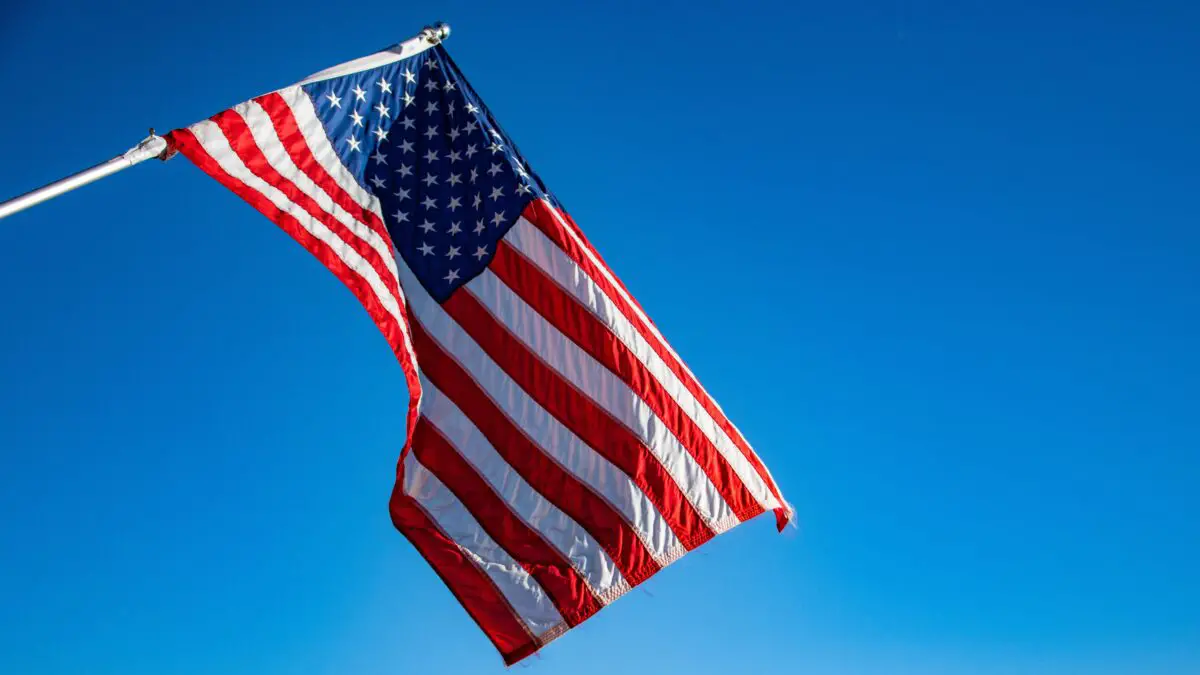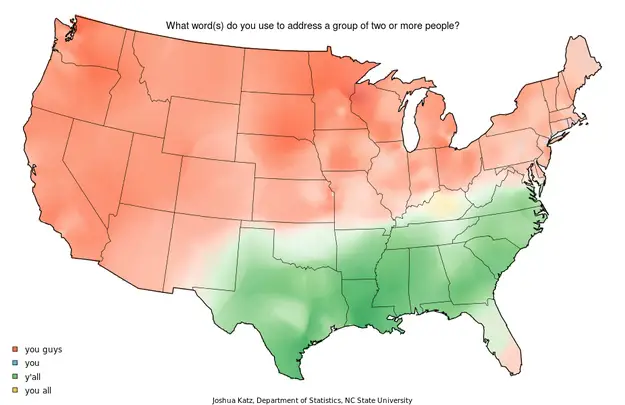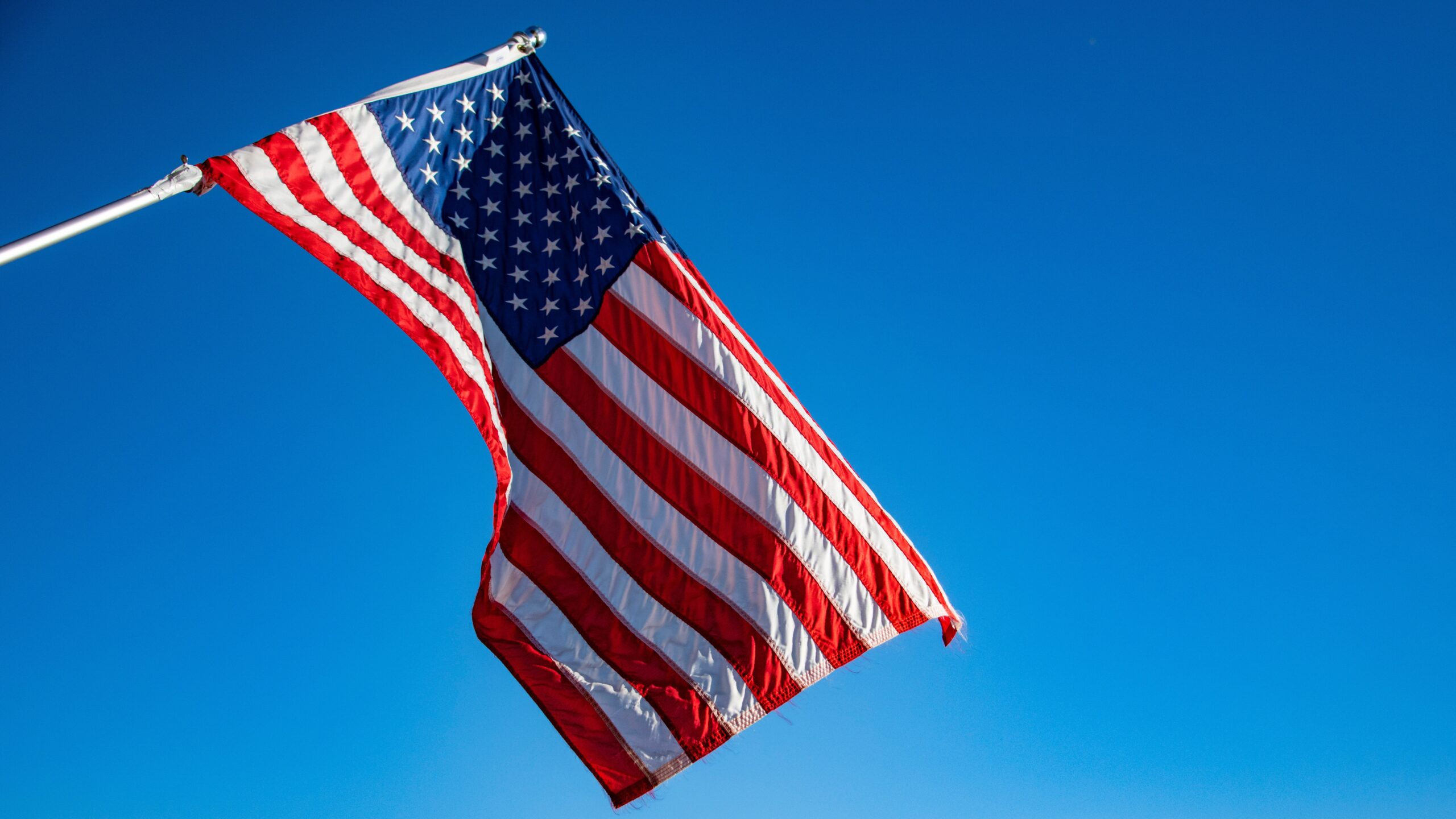There are an amazing number of differences between British and American English, and idioms are no exception. If you’re more familiar with British English or are just learning the language, American idioms can be quite confusing.
In this comprehensive list, we’ll delve into the fascinating world of American expressions and idioms, uncovering their origins and meanings and the unique insights they provide into American culture.
Each one is accompanied by a helpful definition and example sentence, so you can better understand them.

American idioms
A dime a dozen
A dime is an American term for 10 cents; one-tenth of a dollar. A dime is not worth a lot, so if you can purchase a dozen (12) of something for a dime, that item is not at all valuable or rare. That’s what the idiom a dime a dozen means; commonplace or of little value.
“Don’t worry about finding a job in that field; entry-level positions are a dime a dozen these days.”
Y’all
This very American expression is a great example of how the language varies even across the country.
Y’all is a contraction of ‘you all’, used to address a group of two or more people.
“Y’all ready for the party tonight? It’s gonna be a blast!”
It is a predominantly southern USA idiom, and interestingly, only a very small region uses the full version: ‘you all’. Instead, those in the north tend to prefer ‘you guys’, as this map shows:

Redeye
The term redeye refers to an overnight flight, typically characterized by its late departure and early morning arrival. It gets its name from the red and tired eyes that passengers may have due to lack of sleep.
“I’m not looking forward to the redeye flight tomorrow; I always have trouble sleeping on planes.”
Why is this travel idiom predominantly heard in the US, even though the whole world travels by plane? Perhaps it’s to do with the fact that the US is one of the few countries large enough to require overnight domestic flights.
As American as apple pie
One of the most popular American idioms has to be as American as an apple pie. It describes something that is quintessentially American or characteristic of American culture, implying a sense of tradition, comfort, and nostalgia.
“Having a barbecue on Independence Day is as American as apple pie itself!”
The American dream
The American dream is the belief that anyone in the United States can achieve success and prosperity through hard work and determination. This concept symbolizes the ideal of upward mobility and opportunity in American society.
“My parents came to this country with nothing but a dream, and they’ve truly lived the American dream by building a successful business.”
The ethos of the American dream has inspired both praise and ridicule over the years, particularly in literature.
The American way
The list of American idioms wouldn’t be complete without the American way. This is another saying that characterizes the core values of American culture, referring to a lifestyle of individualism, liberty, and the pursuit of happiness.
“In America, everyone has the freedom to pursue their dreams and live life the American way.”
Speak American
American is not a language, so what does it mean when somebody asks you to speak American? They are probably being culturally insensitive, asking you to speak English in an American accent or manner.
“Can you please slow down and speak American? I’m having trouble understanding your accent.”
Of course, English speakers come with a wide variety of accents, dialects, and expressions – not just American!
Land of the free and home of the brave
One of the more iconic American sayings, land of the free and home of the brave, encapsulates the spirit of the USA and is also a line in the country’s national anthem. It symbolizes Americans’ commitment to liberty and courage.
“We live in the land of the free and home of the brave, where we have the freedom to pursue our dreams and speak our minds.”
Across the pond
This expression refers to America when viewed from a European perspective – or the other way around.
Across the pond can refer to the physical or cultural separation between the United States and Great Britain, with the Atlantic Ocean as the dividing ‘pond’.
“My Scottish cousin is visiting us from across the pond this summer. It’ll be exciting to show him around.”
All-American
Some American idioms have changed in meaning over time, but perhaps none so much as this one, as its meaning changes with the times.
Someone or something described as all-American embodies typical American qualities or characteristics and is representative of mainstream American ideals.
“He’s the star quarterback, captain of the cheerleading squad, and gets straight As – the epitome of an all-American teenager.”
As American as a bald eagle
The bald eagle is the national bird (and symbol) of America, so if something is said to be as American as a bald eagle it is unmistakably and distinctly American. The bald eagle also often symbolizes the country’s patriotism and national identity.
“Grilling burgers, watching baseball, and waving the flag – celebrating the Fourth of July is as American as a bald eagle.”
You can have some fun with this simile by adding some more stereotypically American things to it. For example:
- as American as a bald eagle eating an apple pie at a baseball game
- as American as a bald eagle singing The Star Spangled Banner
- as American as a bald eagle shopping at Walmart
Is this the most adaptable of all the bird idioms? Decide for yourself.

American English idioms
Keep it real
This American idiom was originally an authentic expression of the experience of being Black in 1950s America. The phrase was taken over by the film industry a couple of decades later, and then by rap music. You can read about the full history of how it has adapted here.
Now, we have arrived at a place where keeping it real means being authentic and genuine, perhaps fighting back against cultural expectations.
“Despite his immense wealth, he keeps it real by volunteering at the homeless shelter.”
Pass the buck
This makes it onto our list of American idioms, but not because a ‘buck’ is slang for an American dollar. In fact, pass the buck originates from the game of poker, and could also be seen as a sporting idiom.
In any case, it means to pass blame or responsibility to someone else.
“You can’t keep passing the buck to your staff. Sometimes the manager must take responsibility for their team’s actions.”
This is similar to saying the buck stops with someone, meaning that they are responsible for something.
Shoot the breeze
This American English idiom came about in the early 20th century, when the word ‘breeze’ also meant ‘rumor’. Although this meaning has faded, the idiom lives on: to shoot the breeze means to chat casually with no particular purpose.
“My grandfather is best friends with his next-door neighbor. They spend at least an hour a day shooting the breeze together.”
Melting pot
You might have used the term melting pot to talk about cooking, but it fits just as well on this list of American idioms. Often used to describe American society, it portrays the country as a diverse blend of cultures, backgrounds, and ethnicities all mingling together.
“America truly is a melting pot, where people from all over the world bring their unique traditions and make this country richer with cultural diversity.”
For the birds
Something described as for the birds is worthless or even undesirable.
“Some people believe that pursuing dreams is for the birds, but I think it’s important to follow your passions regardless of others’ opinions.”
This idiom is used in the US, but not really in the UK.
In God we trust
In God we trust is the official motto of the United States and can be found on all American currency. It represents the strong religious beliefs and faith that have played a significant role in shaping American culture and values.
“Even in challenging times, we must remember to stay resilient. In God we trust.”
Uncle Sam
If you could put a name to the government of the United States you would call it Uncle Sam. This patriotic character personifies the collective authority and governance of the nation.
“When Uncle Sam calls, we answer. It’s our duty as Americans to support and serve our country when needed.”
Knock it out of the park
Here is one of many baseball idioms that are more common in the US than elsewhere. To knock it out of the park means to do something exceptionally well.
“Well done, you knocked it out of the park with that performance!”
Jump on the bandwagon
Although originally an American English idiom, this term is now used widely in British English too. To jump on the bandwagon is to join or support a popular trend or movement; following the crowd or embracing something simply because it is fashionable or widely accepted.
“Many people are starting to eat plant-based diets, so I decided to jump on the bandwagon and give it a try myself.”
John Hancock
A John Hancock is a colloquial way of referring to someone’s signature. It originates from one of the American founding fathers, John Hancock, whose signature on the United States Declaration of Independence is particularly large and prominent.
“Before we finalise the agreement, I’ll need your John Hancock right here.”
List of American idioms with a British equivalent
Finally, let’s cover a few American English idioms that have a direct equivalent British idiom. Be careful to use the correct version depending on who you are addressing.
| American English | British English | Meaning |
|---|---|---|
| A tempest in a teacup | A storm in a teapot | An overreaction to a minor matter |
| Give someone their walking papers | Give someone their marching orders | Fire someone from work |
| Put in your two cents (worth) | Put in your pennyworth/penn’orth | Share your opinion or idea, even if it is not called for |
| Spill the tea | Spill the beans | Reveal a secret or some gossip |
| Take the cake | Take the biscuit | Be the worst in a series of negative occurrences |
| The frosting on the cake | The icing on the cake | An additional enhancement to something already good |
| Wear the pants | Wear the trousers | Be in control in a relationship |
Isn’t it interesting to see how many differences there are between British vs American words?
As they say in Hollywood – that’s all folks. We hope you’ve gained a deeper appreciation for the richness and diversity of the English language with these American idioms.
Please feel free to leave a comment or share your thoughts below. We would love to hear about your favorite idioms, any interesting experiences you’ve had with them, or any additional insights you’d like to contribute.



